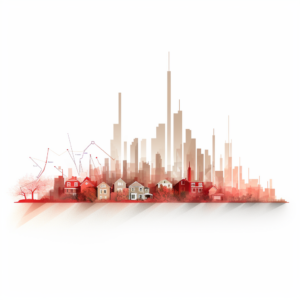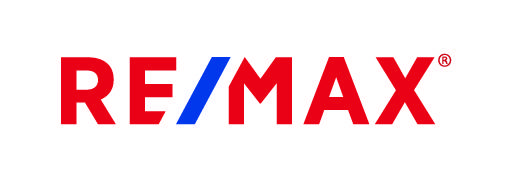The Toronto real estate market has been a subject of great interest and speculation in recent years. With soaring property prices and a constant buzz of activity, it’s crucial to understand the dynamics of this dynamic market. In this article, we will explain the Toronto real estate bubble concept and its relevance to the market. Additionally, we will delve into the Toronto housing market, discussing trends, potential risks, and predictions for the future.
Table of Contents:

Introduction to the Toronto Real Estate Market
Toronto, the largest city in Canada, has experienced a robust real estate market characterized by high demand and limited supply. The city’s vibrant economy, diverse population, and substantial employment opportunities have made it an attractive destination for homebuyers and investors. However, the market’s sustained growth has raised concerns about its sustainability and the possibility of a real estate bubble.
Brief mention of the concept of a real estate bubble
A real estate bubble refers to a rapid and unsustainable increase in property prices driven by speculative investments rather than fundamental economic factors. Signs of a potential housing bubble include skyrocketing prices, excessive borrowing, and inflated valuations. In contrast, some experts argue that the Toronto housing market is overvalued and at risk of a bubble burst.
Others maintain that the market is driven by legitimate factors such as population growth and limited land availability. It is important to analyze various indicators and predictions to gain a comprehensive understanding of the Toronto real estate market. Let’s explore the key factors influencing the market and examine different viewpoints to form a well-rounded perspective.

Understanding the Real Estate Bubble
In order to comprehend the dynamics of the Toronto housing market and evaluate its potential risks, it is vital to understand the concept of a real estate bubble. This section will define a real estate bubble, examine its historical context, and explore indicators that help identify its presence.
Definition of a Real Estate Bubble
A real estate bubble refers to a phenomenon characterized by a rapid and significant escalation in the prices of properties or a group of properties over a sustained period. This upward surge initially fosters optimistic beliefs among market participants, leading to heightened anticipation of future price increases, attracting new buyers, often including speculators who seek to profit from trading rather than utilizing or deriving income from the assets.
Subsequently, these inflated expectations encounter a reversal, prompting a sudden and steep decline in property prices. This downward spiral frequently leads to a sharp price decline, often resulting in a housing market crash.
| Did you know? A small house price bubble is marked by a sharp rise in real prices of at least 35% over five years or 20% over three years, followed by a sharp drop of at least 20%. |
Historical Context of Real Estate Bubbles
Real estate bubbles have occurred throughout history, and studying their patterns can provide insights into the current market. One notable example is the housing bubble that triggered the global financial crisis in 2008. Excessive lending practices inflated home prices, and a surge in subprime mortgages created an unsustainable environment, ultimately leading to the housing market’s collapse.
Indicators of a Real Estate Bubble
Identifying indicators of a real estate bubble is crucial for assessing the potential risks in a market. Here are some common signs that experts look for:
- Rapid Price Appreciation: Sharp and unsustainable increases in property prices over a short period of time may indicate a bubble.
- Speculative Investments: A significant portion of buyers entering the market for speculative purposes rather than long-term housing needs can contribute to a bubble.
- Excessive Borrowing: High levels of mortgage debt, particularly when combined with relaxed lending standards, can inflate the housing market and increase the vulnerability to a crash.
- Overvaluation: When property prices significantly exceed their intrinsic value, it suggests an overvalued market, increasing the likelihood of a bubble.
- Increased Housing Supply: A sudden surge in the construction of new housing units without matching demand can create an oversupply, leading to a potential bubble burst.
- Unsustainable Demand: If the demand for housing is primarily driven by temporary factors, such as speculative investments or unrealistic expectations of future price increases, it may indicate a bubble.
The Toronto Real Estate Bubble
In this section, we will explore the current state of the Toronto real estate market, examine the evidence of a potential bubble, and identify the factors contributing to its formation.
Current State of the Toronto Real Estate Market
The Toronto housing market has experienced significant growth in recent years, with property prices reaching record highs. Low-interest rates, population growth, and limited housing supply have contributed to the market’s strength. However, this sustained growth has led to concerns about the presence of a real estate bubble.
According to the Bank of Canada’s assessment of housing market vulnerabilities, the rapid increase in property prices in Toronto raises concerns about the potential risks to financial stability. This assessment highlights the need for a careful examination of the market dynamics.
| Did you know? New listings sold at a far higher rate than they had a year before. This strongly indicates that competition among buyers was much higher last month than a year ago, which drove the average selling price to about $1.2 million. |
Evidence of a Bubble in Toronto
Several indicators suggest the presence of a potential real estate bubble in the Toronto market. These include:
- Skyrocketing Prices: Property prices in Toronto have surged dramatically over a short period, surpassing the rate of income growth and inflation. Such rapid appreciation is often associated with a bubble. In May, there was a month-over-month increase of 5.1% in the national house sales.
- Speculative Activity: Speculative investments, driven by the expectation of further price increases, have become increasingly common in the Toronto real estate market. This behaviour can contribute to the formation of a bubble.
- Overvaluation: Experts argue that the Toronto market is overvalued, with property prices exceeding their intrinsic value. This overvaluation raises concerns about the sustainability of the market and the potential for a correction.
- High Debt Levels: Increased borrowing and high levels of mortgage debt can make the Toronto market more vulnerable to a downturn.
| Did you know? Canada has the highest levels of household debt in the G7. |
Factors Contributing to the Bubble
Several factors have contributed to the formation of a potential real estate bubble in Toronto. These factors include the limited housing supply, population growth, low-interest rates, and investor activity.
Firstly, the demand for housing in Toronto has exceeded the available supply, resulting in a shortage of properties. This scarcity has caused prices to rise and has created a highly competitive market environment.
Secondly, Toronto’s population has been steadily increasing due to immigration and interprovincial migration. The influx of people has intensified the demand for housing, putting additional pressure on prices. In 2022, Canada’s population reached 38.85 million people, an increase of 640,000 compared to 2021.
Thirdly, low-interest rates have historically made mortgages more affordable, attracting buyers and increasing the demand for housing. However, prolonged periods of low-interest rates can also cause the formation of a real estate bubble by encouraging speculative investments.
Lastly, real estate investment in Toronto has become increasingly popular among domestic and international investors. The potential for high returns has attracted investors, further stimulating the market and potentially inflating prices.
These combined factors have created a situation in which Toronto’s real estate market is at risk of experiencing a bubble. It is crucial for policymakers and market participants to closely monitor and manage these factors to ensure the stability and sustainability of the real estate market in Toronto.
| Did you know? Canada welcomed 437,180 immigrants in 2022 and saw an increase of 607,782 non-permanent residents. Both numbers are record highs. |

Implications and Predictions
In this section, we will discuss the potential consequences of the Toronto real estate bubble, explore expert predictions, and provide advice for buyers and sellers navigating a bubble market.
Potential Consequences of the Bubble
The presence of a real estate bubble in the Toronto housing market can have significant implications for various stakeholders. Some potential consequences include:
- Market Correction: If the bubble bursts, it could lead to a market correction, resulting in a significant decline in property prices. This can negatively impact homeowners’ equity and financial stability.
- Financial Instability: A bursting bubble can have broader economic implications, potentially affecting financial institutions and the overall economy.
- Impact on Housing Affordability: The inflated prices during a bubble can make homeownership more challenging for first-time buyers, exacerbating affordability issues in the long run.
Expert Predictions for the Toronto Market
Experts closely monitor the Toronto housing market to make predictions about its future trajectory. While forecasts vary, some common expectations include the following:
- Market Correction: Many experts anticipate a market correction following sustained price growth. However, the magnitude and timing of the correction remain uncertain.
- Moderate Growth: Some predict a slowdown in price growth, with a shift towards more moderate and sustainable increases in property prices.
- Increased Market Volatility: The presence of a bubble can lead to increased market volatility as speculative activity and uncertain market conditions persist.
Advice for Buyers and Sellers in a Bubble Market
Navigating a bubble market requires careful consideration and informed decision-making. Here are some key pieces of advice for buyers and sellers:
Buyers
The first step for buyers should be conducting thorough research. Evaluate market trends, property prices, and economic indicators before purchasing. Also, ensure that you can comfortably afford the property, even in the event of a market correction or interest rate increase.
Look for properties with strong fundamentals and long-term potential rather than being solely driven by short-term price appreciation.
Sellers
Sellers are advised to set a competitive and realistic price based on the current market conditions to attract potential buyers. Furthermore, understand that the market dynamics can change, and be flexible in adjusting your selling strategy accordingly.
Consult with experienced real estate agents who can provide valuable insights and help navigate the market. By staying informed, conducting thorough research, and seeking professional advice, buyers and sellers can make more informed decisions in a bubble market.

FAQ
What is a real estate bubble?
A real estate bubble refers to a situation where property prices experience a rapid and unsustainable increase, driven by speculation rather than intrinsic value. It is characterized by a detachment of market prices from fundamental economic factors.
How can I protect myself from a real estate bubble?
To protect yourself from a real estate bubble, consider the following:
- Conduct thorough research before making any investment decisions.
- Be cautious of speculative investments and focus on long-term value.
- Ensure you can afford the property even in a market correction.
- Seek professional guidance and stay updated on market trends.
What happens when a real estate bubble bursts?
When a real estate bubble bursts, it typically leads to a significant decline in property prices, market instability, and potential economic repercussions. Homeowners may experience decreased equity, and financial institutions may face increased risks.

Toronto Real Estate Bubble – Final Words
The Toronto real estate market’s potential bubble raises concerns about its sustainability and its potential risks. By monitoring expert predictions, understanding the implications, and seeking professional guidance, buyers and sellers can navigate the market with more confidence.
Staying informed and making prudent decisions will be vital in adapting to the evolving dynamics of the Toronto housing market.













